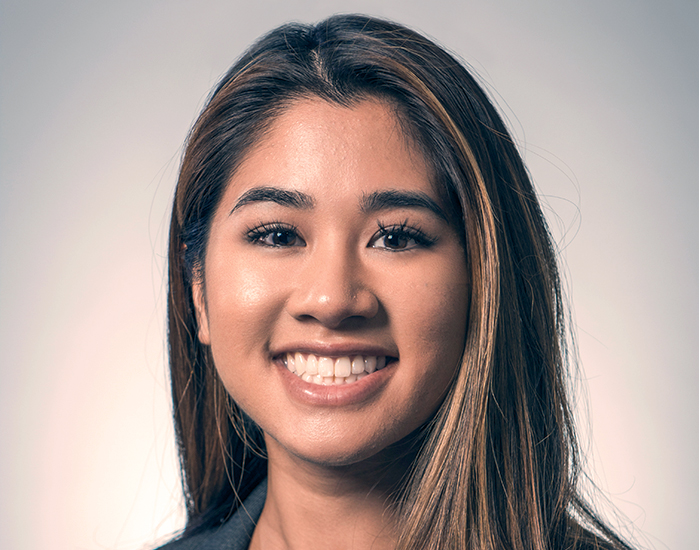Angela Hoang, who recently received her Master of Science in Human Genetics and Genomic Data Analytics (MSGDA) degree from Keck Graduate Institute (KGI), now works as an Associate Clinical Variant Curator at Natera for the Women's Health division. She analyzes genetic test results for prospective parents to help determine if there's a risk of passing down serious genetic conditions to their children.
"You're providing a family with answers and reassurance, and whether or not the report comes back positive or negative, I believe that knowledge is power," said Hoang, MSGDA '20.
Hoang has always been drawn towards the lab. It was during her post-baccalaureate internship at City of Hope in cancer therapeutics that she became interested in clinical genetics.
"I figured out my professional goal, which is to translate complex concepts into something that's more simplified but still meaningful," Hoang said. "That's what led me to KGI and the MSGDA program."
She learned of the opening at Natera after Associate Director of Career Services Melissa Scott encouraged her to conduct informational interviews with others in her prospective field. During this process, Hoang talked to someone from Natera, who told her about the position and is now her coworker.
Hoang has been passionate about women's health since college, where she did undergraduate research on reproductive physiology. Getting to work in the Women's Health division, along with the company's overall mission, drew her to Natera.
"I love being part of a company that emphasizes that they embrace diversity, and they believe in making a difference through their products because they state that behind every sample is a person," Hoang said.
"I'm really appreciative that I get to combine my passion for women's health and clinical genetics on a daily basis."
In her current role, she acts as a liaison for genetics counselors, presenting relevant information from the data which the counselors then use to prepare reports for clients.
"I'm kind of like a genetic detective in that I am looking for any evidence to assess a genetic variant and determine if it should be reported back to the patient," Hoang said.
Hoang believes that KGI's MSGDA program prepared her well for her current position in that it introduced her to the guidelines used to classify variants. She's also grateful to Melissa Randall, Emily Quinn, and Ashley Mills of KGI’s Master of Science in Human Genetics and Genetic Counseling program.
"They taught us so much about the clinical side of genetic testing because they shared case studies and patients' stories," Hoang said. "I mainly work with data on a daily basis, and it's interesting to understand the disease on a molecular level, but also knowing how it can affect a patient and their family reminds you how impactful the work that you're doing is."
Hoang also credits MSGDA Program Director Barbara Fortini, who teaches several genetics courses and is an advisor for the capstone project, for her success.
"I really admire her in that she wore so many hats," Hoang said. "She was a mentor to all of us when we came looking for internships and applying for jobs."
For Hoang, her most rewarding experience at KGI was being in the inaugural class of the genetics program.
"I appreciate that KGI valued our input about what we thought could be improved upon for future cohorts," Hoang said.
